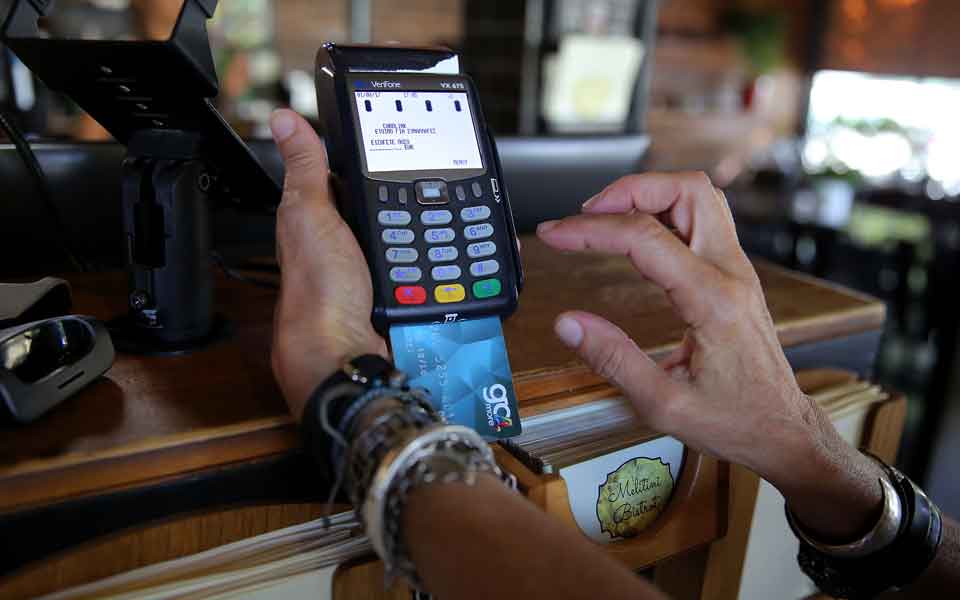Greece EU laggard in e-payments despite big acceleration in 2016

Electronic payments rose faster in Greece last year than in any other European Union member-state, amounting to 108.8 percent year-on-year, as recorded by the European Central Bank. The trend has continued this year, due in large part to a law linking e-spending with an income tax discount as well as the compulsory installation of card terminals by all tradesmen and professionals.
Even so, the ECB statistics reveal the distance separating Greece from more developed markets in the EU: While the sum of credit and debit card and other online payments in Greece amounted to 8.8 percent of gross domestic product, the average rate in the eurozone was 14.3 percent, while in the 28 EU member-states it came to 19.7 percent of GDP. The only other countries in the bloc with a rate below 10 percent of GDP were Romania (6.4 percent) and Bulgaria (6.7 percent). Great Britain and Portugal were at the top of the table.
The number of card transactions in Greece came to 301.5 million last year, of which 221.5 million were conducted through debit cards and the other 78.4 million through credit cards. The value of card transactions reached 15.4 billion euros, up 73.1 percent from 2015, with 10.3 billion concerning debit card transactions and 4.9 billion euros in credit card transactions.
The average value per transaction in Greece amounted to 51.10 euros, which is very close to the EU average of 48.90 euros and the eurozone’s 46.80 euros. On the other hand, Greece was found to be trailing considerably in terms of the transaction value per resident, which amounted to just 1,400 euros per year in this country against 4,500 euros in the eurozone and 5,700 euros in the entire European Union.





